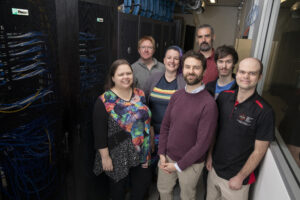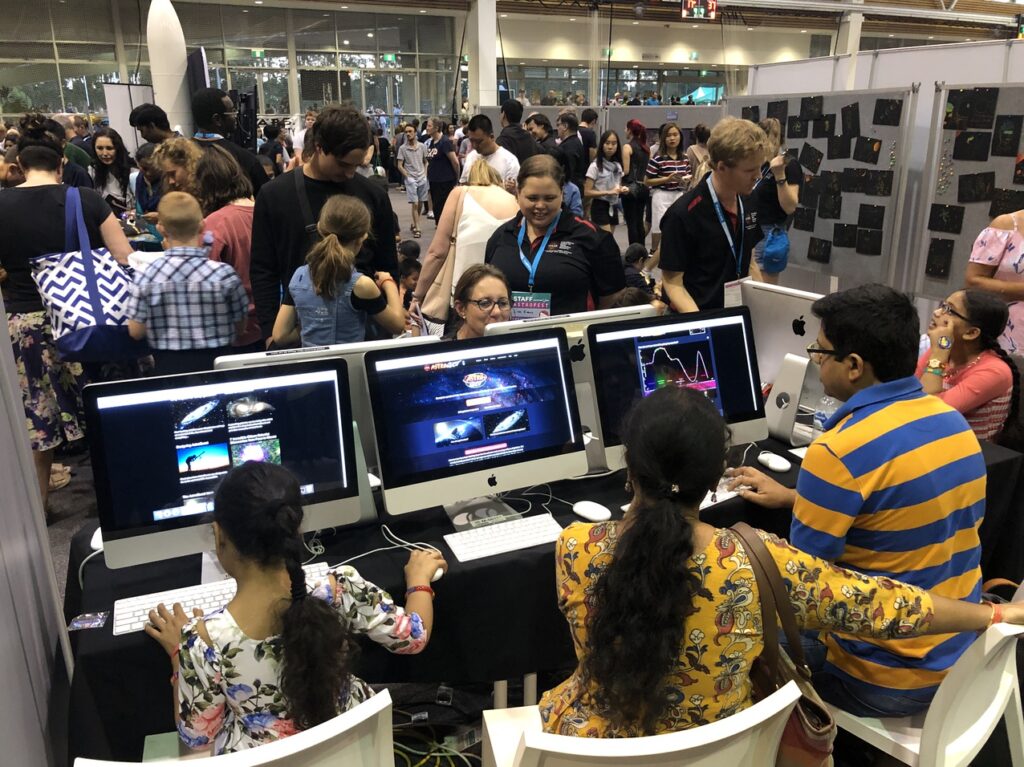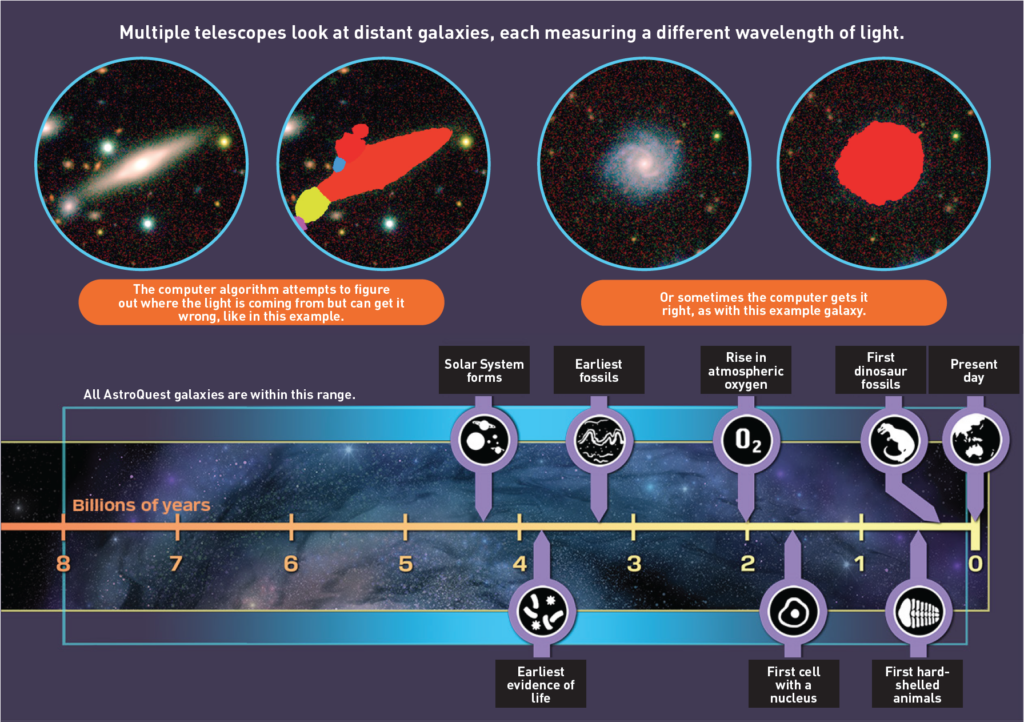 ICRAR’s online citizen science project AstroQuest has seen over 10,000 volunteers sign up to help WA astronomers better understand how distant galaxies grow and evolve. The initiative was a finalist in the 2020 Eureka Prizes for Innovation in Citizen Science.
ICRAR’s online citizen science project AstroQuest has seen over 10,000 volunteers sign up to help WA astronomers better understand how distant galaxies grow and evolve. The initiative was a finalist in the 2020 Eureka Prizes for Innovation in Citizen Science.
AstroQuest volunteers support astronomers by studying images of galaxies millions of light years from Earth, and working out which light is coming from which galaxy. The innovative project combines the power of the human brain with the best of computer algorithms and machine learning.
The work helps researchers like ICRAR-UWA astrophysicist Dr Luke Davies. “When you go outside and look up at the night sky, there’s a lot of black with all of the stars dotted around,” Dr Davies says. “But when you look with a very powerful telescope for a long time, you actually see that there are galaxies and stars everywhere, all over the sky. It’s really, really crowded, and many galaxies and stars overlap.”

AstroQuest Team
To figure out which light is coming from which galaxy, astronomers run their observations through sophisticated computer algorithms. But the computer gets it wrong in about 5 to 10 per cent of cases. It’s simply no match for the human eye and brain.
AstroQuest volunteers—or AstroQuesters—are asked to check the computer’s work. Where the algorithm gets it right, the volunteers mark it as correct. Where the algorithm gets it wrong, the volunteers mark it as incorrect and select a reason why. These galaxies are then inspected by professional astronomers. Every galaxy is studied by several volunteers, with the project aiming to have each galaxy ‘eyeballed’ at least five times.

New AstroQuesters inspecting galaxies at Astrofest in Perth.
63 Percent
of AstroQuest volunteers have never studied science outside of school
76 Percent
of AstroQuest volunteers have never worked in a science-related industry
ICRAR citizen science project officer Lisa Evans says these answers are extremely helpful to astronomers. “There’s never been a citizen science project quite like this before. The results can help improve the algorithm being used to find galaxies in huge surveys. Plus the answers can be used to train machine learning algorithms to do this work better and faster.”
Dr Davies is a project scientist for the million-dollar international survey called WAVES. The ten-year initiative is the biggest galaxy evolution spectroscopic survey ever undertaken, and will accurately measure the light coming from millions of galaxies. Knowing the amount of light that comes from a galaxy can tell us things like how many stars the galaxy currently has, how many stars it’s forming and how much dust it has.

AstroQuest in action. Demonstrating some of the imagery the AstroQuest volunteers are shown and the range of galaxies that can be detected through the AstroQuest program.
Dr Davies says professional astronomers previously looked through all the galaxies to find the computer’s mistakes. “As more and more galaxies are surveyed, there simply aren’t enough researchers to do it,” he says.
“Our AstroQuest volunteers are essentially at the forefront of scientific research, helping million-dollar international projects from their computers at home.”
Dr Luke Davies
ICRAR-UWA Astrophysicist
Since AstroQuest was launched in 2019, volunteers have finished inspecting a catalogue of 60,000 galaxies, with some individual galaxies reviewed hundreds of times. Their efforts have improved an automatic source extraction software, called ProFound, which was developed by WAVES project scientist and AstroQuest science team member Associate Professor Aaron Robotham and is used by astronomers all over the world. The volunteers’ work means that only one-tenth of the galaxies processed by ProFound that currently require intervention will likely need human eyes in the future.
90 Percent
Reduction in galaxies processed by ‘ProFound’ needing human intervention because of AstroQuest
AstroQuest has had measurable benefits for its almost 10,000 volunteers and the community, building STEM knowledge. In a recent survey, 86% of volunteer respondents said they learnt a lot about astronomy as a result of the project, 95% said they really enjoyed using the site and 87% said they intended to keep using it. The project is also changing attitudes towards astronomy, and STEM in general, including making participants more likely to consider a career in science.
“I used to doubt that I want to be an astrophysicist, and then my teacher advised AstroQuest to me. Now I’m sure, that space is so interesting, that I want to connect my life with it.”
AstroQuest Volunteer
Header image: The famous antennae galaxies, showing a multiwavelength view from both the Hubble Space Telescope and ALMA. Galaxies like this merging pair are more difficult for ProFound to process, which is where AstroQuest users can help. Credit: ALMA: (ESO/NAOJ/NRAO). Visible light image: the NASA/ESA Hubble Space Telescope.
